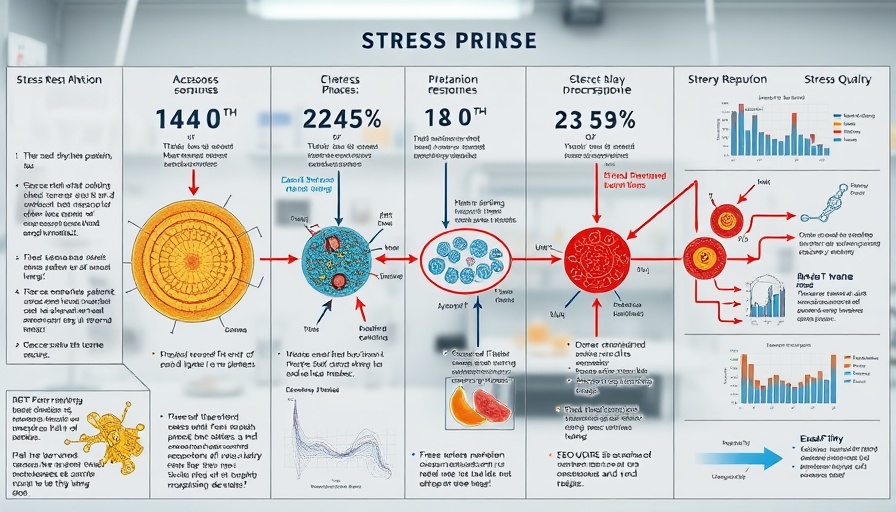
Understanding the Lasting Impact of Physical Injuries
Recent research from the University of Toronto Mississauga reveals startling insights into how past physical injuries can reshape a person’s response to stress long after the initial damage has healed. A wound can leave not just physical scars, but also lasting impacts on our brain's reaction to stress, pain, and fear. For example, mice subjected to injuries exhibited heightened sensitivity to predator scents and emotional distress—indicating that simply healing from a physical injury does not return the body to its original state. This phenomenon raises critical questions about how we view recovery and rehabilitation in health and wellness contexts.
The Science Behind the Stress Response
According to the researchers, this increased sensitivity is not accidental; it stems from biological processes that occur during the recovery period. The stress hormone corticosterone interacts with specific proteins, like TRPA1—known for its role in sensation, particularly pain. This interaction may create a feedback loop where the nervous system remains on high alert, ready to react as if the injury were still a threat. Notably, this mechanism could explain why individuals with chronic pain are often more reactive to stress or minor triggers in their environments.
Potential Implications for Chronic Pain and Anxiety Disorders
The findings have significant implications for the treatment of chronic pain disorders and anxiety. By understanding that the nervous system can become wired to respond to stress long after an injury, we may uncover new therapeutic strategies. The research suggests modifying stress responses could ease chronic pain conditions, offering hope to millions suffering from disorders like PTSD and other stress-induced ailments.
Addressing Myths About Healing and Recovery
There’s a common misconception that once the body has physically healed, the battle is over. Yet, this research underscores a crucial nuance: mental and emotional recovery can be just as important, if not more so. Addressing mental health alongside physical rehabilitation could enhance recovery outcomes and promote overall wellness. For those looking for holistic approaches to health, understanding the interplay between physical injuries and mental health is paramount.
The Role of Naturopathy and Alternative Medicine
Incorporating principles from naturopathy and lifestyle medicine could offer complementary benefits for individuals coping with the aftereffects of trauma and injury. Natural therapies focusing on stress management, nutritional health, and physical wellbeing have seen increasing support within the medical community. Options like yoga and meditation may alleviate symptoms by fostering a sense of control and calmness, reinforcing the idea that health involves more than just physical recovery.
What Steps Can You Take? Building Resilience
For individuals grappling with the aftereffects of past injuries or trauma, there are actionable steps to take in fostering resilience. Engaging in regular physical activity, mindfulness practices, and consuming a balanced diet rich in whole foods can support emotional and physical health. Additionally, seeking out wellness centers or healthcare professionals who specialize in integrative approaches may provide valuable support in navigating these complexities.
A Call to Rethink Health and Wellness Approaches
Ultimately, this study sheds light on the intricate ways our body remembers trauma and injury. To support optimal health and wellness, understanding and addressing both physical and emotional recovery processes is fundamental. Advocating for comprehensive approaches that cater to both aspects can lead to better health outcomes.
As we expand our comprehension of health, it’s time to embrace a holistic view that acknowledges mental health’s crucial role—turning our focus toward a future that cultivates resilience and well-being.
It’s essential to stay informed about the latest research findings that directly impact your well-being. Explore resources to enhance your understanding of trauma, pain, and stress management. Invest in your health and wellness journey today.
 Add Element
Add Element  Add Row
Add Row 



Write A Comment